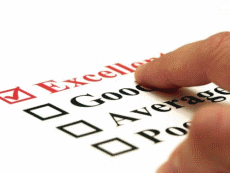You’ve made a decision to buy a
house. From now until you close, you want to keep your nose clean when
it comes to getting your home financed. Even if you have good credit,
there are things you can do to make lenders think twice. It’s your
responsibility to make sure that doesn’t happen.
Here are 10 things you don’t want to do while you’re in the process of buying a home.
1. Don’t change your job
before applying for a home loan. Along with that, now is not the right
time to become self-employed or quit your job. You want to show lenders
stability, which means you’ll be less likely to default on the loan.
2. Don’t change banks. Like your employment, you want your banking history to show stability.
3. Don’t buy a car or truck or
any other form of transportation that you have to finance. Buying one
increases your debt-to-income ratio and that’s something loan officers
don’t want to see.
4. Don’t buy furniture on
credit before buying your house. Like financing a car, charging
big-ticket items increases your debt-to-income ratio and now is not the
time.
5. Don’t be late on your
credit card payments or charge excessively. You need a track record of
responsibility and show that you can manage your money.
6. Don’t make large deposits
into your bank accounts. Lenders like the money that will be your down
payment to be sitting in your account for at least two months – what
they call “seasoning” – so that the funds don’t just appear out of the
ether.
7. Don’t lie on your loan
application. Sounds simple, right? But don’t leave out any debts or
liabilities you have or fudge your income. It’s fraud.
8. Don’t co-sign a loan for
anyone. Even if you’re not the one making the payments on that loan, it
increases your debt-to-income ratio.
9. Don’t have inquiries made
into your credit. Looking for new credit translates into higher risk for
lenders. If your inquiries are related to your mortgage search, it
usually doesn’t affect your credit score because the assumption is
you’re rate shopping. But opening credit accounts within a
short period of time represents some risk and your credit could take a
hit. It’s probably not a huge factor in your calculating your ability to
repay a loan but why take a chance at this juncture?
10.
Don’t spend your money for closing costs. Part of the price of financing
a loan is the closing costs and you’ll likely have some responsibility
for paying them. Make sure you have enough for your share of the
obligation.


